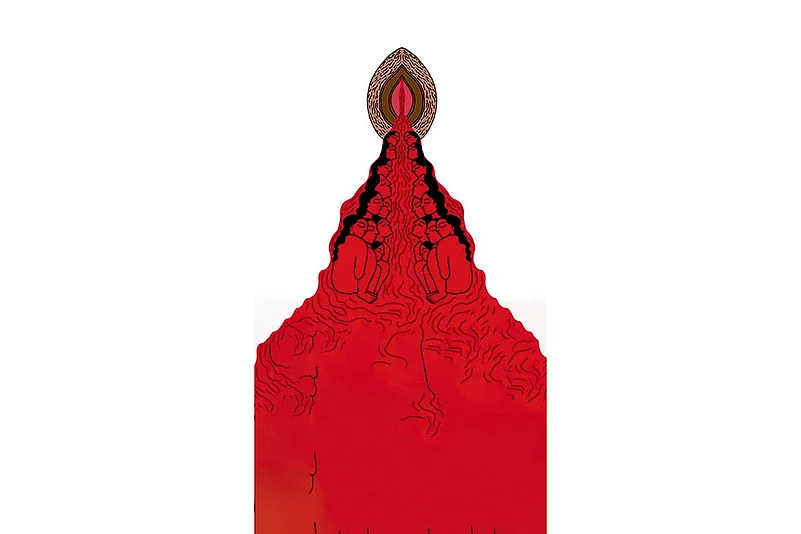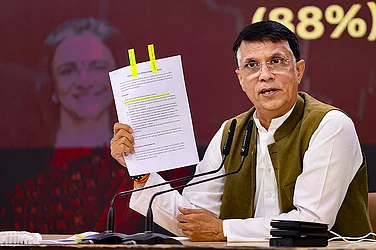As the nation girds itself for the annual observance of Independence Day, we shall witness the ritualistic exaltation of icons of our national identity, and be regaled with speeches that extol our military prowess, economic growth and global stature. The celebration of national triumphalism will once again become the template of freedom. A notable recent moment of national triumphalism was the Men’s T20 Cricket World Cup victory. Once again, a cricket victory served as a reminder of our unity as a nation—a moment where cricket nationalism fostered a sense of national identity, camaraderie and pride.
Drawing on one’s sense of identity and belongingness from the glorification of the body politic has been the popular form of celebrating independence. In this framework, the State assumes the role of the paterfamilias (head of the family), reinforcing mainstream markers of identity, honour and pride. The intricate historical dialectic of freedom—marked by struggle, resistance and reclamation—becomes obscured by the noisy assertions of nationalism. In the recent past, the influence of cultural nationalism has further blurred these historical complexities, overshadowing the vital traditions of reclaiming freedom, which is crucial for the celebration of freedom in post-colonial India.
The ability to access basic amenities and freely participate in the public sphere are foundational to the reclamation of freedom for people in India today. Even today, menstruators in the country do not have the ‘freedom to bleed’—the ability to menstruate with dignity, free from social stigma, and with access to adequate infrastructure. The lack of policy mechanisms and infrastructure that treat menstruation as a basic physiological function—rather than an individual or gender-specific issue—denies menstruators access to the ‘freedom to bleed’ as a fundamental state-provided necessity.
The lack of proper sanitation facilities, including clean and functioning toilets in schools and public spaces, significantly impact the daily lives and basic freedom of girls and women who menstruate. According to the National Family Health Survey (NFHS-5), government initiatives have increased the use of sanitary napkins from 42 per cent to 64 per cent during 2019-21. However, access to menstruation-related infrastructure continues to be hindered by the larger framework of denormalisation of periods as a gender-specific issue, therefore steeped in stigma and silence. Menstruation continues to be seen as a private or a personal issue of girls and women that is more often than not dealt with patriarchal cultural norms that seek to control their freedom and limit their choices. The prevailing cultural norms insist that menstruating girls be made to skip school during their periods, and working women acquire the attitude of blue-knuckling or powering through their periods despite the pain and other health complications that may accompany them.
According to Dignity for Her by Dasra, a Mumbai-based philanthropy organisation, “Girls typically miss school six days a month on average due to the difficulty of managing their periods at school. This leads to nearly 23 per cent of girls dropping out of school upon reaching puberty, severely undermining their potential as individuals and future workers.” The State does not base its menstruation-related policies on the idea of normalising menstruation, but continues to treat it as an exception or a private, mostly secretive act. The normalisation of periods would entail sensitising schools, workplaces and public places about the experiences of girls, women and people who bleed. Instead, the State operates within a male-centric framework, treating the absence of menstrual bleeding as the norm, and distributing resources to girls and women as the marginalised beneficiaries of its period-related policies. This approach excludes women as the ideal typical school student, worker and citizen.
Menstruation continues to be seen as a private or a personal issue of girls and women that is dealt with patriarchal cultural norms that seek to control their freedom and limit their choices.
The absence of a national policy on menstrual leave further exemplifies this gender-blind approach. While the topic has gained significant attention and discussions in India, the government has not introduced any centralised legislation on period leave. As of now, there is no nationwide legal mandate for period leave in India. The policies implemented are largely driven by individual companies or state governments. The Bihar government has been a pioneer in this regard, having introduced a menstrual leave policy as early as in 1992. Female employees in the Bihar government are entitled to two days of special leave each month for menstruation-related issues. One of the most notable implementations of a period leave policy in India comes from the private sector. In August 2020, Zomato introduced a period leave policy for its employees. Under this policy, female employees are entitled up to 10 days of period leave per year.
A nation without a period leave policy underscores a broader societal reluctance to acknowledge and accommodate the health needs of menstruators, thereby hindering their full participation and potential in the workforce. The ‘freedom to bleed’ would specially mandate the breaking of the societal standard in which policies, rules and laws are framed to privilege male experience and perspectives. In her groundbreaking work, Toward a Feminist Theory of the State (1989), Catharine MacKinnon critiques the male-centric approach of the State by highlighting how legal standards and societal norms are constructed around male experiences and perspectives. For instance, laws concerning sexual harassment and rape have historically been framed in ways that reflect the male viewpoints, often minimising the lived realities of women. This results in legal definitions and protections that fail to effectively address the specific ways in which women experience these forms of violence and discrimination.
MacKinnon’s critique extends to the broader societal context where male behaviour and characteristics are often viewed as the universal standard. This is evident in various domains such as the workplace, where professional norms and expectations are frequently modelled on male patterns of work and interaction, thereby marginalising women and other gender minorities who do not conform to these standards. Such norms implicitly demand that women assimilate into a male-defined framework, perpetuating a cycle where male experiences and behaviours are elevated as the norm, while female experiences are devalued or overlooked.
Any effort towards thinking of a national period leave policy is hindered by the concern that period leave policies might inadvertently reinforce gender stereotypes and lead to further discrimination against women in the workplace. Critics argue that such policies could result in employers being reluctant to hire women or promote them to higher positions, fearing potential disruptions due to menstrual leave. This argument frames menstruation as an inherent disruption, implying that women are a liability due to their bodily functions. An environment of workplace equality, mandated by legalisation, should address these needs equitably.
The idea of ‘freedom to bleed’ stands for the normalisation and de-stigmatisation of menstruation, ensuring that it does not hinder women’s access to opportunities and their ability to participate fully in society. Amartya Sen and Hannah Arendt’s theorising of freedom is important in emphasising the importance of capabilities and active participation as important aspects of freedom. Sen’s capability approach broadens the understanding of freedom beyond the mere absence of constraints, focusing instead on the real opportunities available to individuals. Sen argues that true freedom involves the ability to pursue a life one has reason to value, which includes access to resources, healthcare and social support.
The ‘freedom to bleed’ movement aligns with this perspective by advocating access to menstrual hygiene products, proper sanitation facilities and education about menstrual health. Ensuring these resources empowers women to manage their menstruation with dignity and without fear of stigma or exclusion, thus expanding their capabilities and enabling them to fully participate in educational, economic and social activities.
Arendt’s conception of freedom emphasises the importance of active participation in the public sphere and collective political action. She views freedom as inherently tied to the ability to act and engage in public life, where individuals come together to deliberate and decide on matters of common concern. The feminist advocacy for ‘freedom to bleed’ can be seen as a form of such political engagement. By demanding the right to bleed with dignity, menstruators are asserting their right to participate in the public sphere on equal terms and influencing the social and political landscape to be more inclusive and supportive.
In the context of the observance of India’s Independence Day, these notions of freedom gain additional significance. As the nation celebrates its independence, the feminist notion of ‘freedom to bleed’ reminds us that true independence and freedom are not fully realised until people of all genders can exercise their rights and capabilities without facing systemic barriers. ‘Freedom to bleed’ means pushing for a society where freedom is experienced in its fullest sense—through enhanced capabilities, dignity and active participation in shaping one’s environment.
(Views expressed are personal)
(This appeared in the print as 'We Bleed, Therefore We Are')
MORE FROM THIS ISSUE
Abhiruchi Ranjan is Assistant Professor, Department Of Political Science And History, Christ (deemed to be university), Bengaluru































